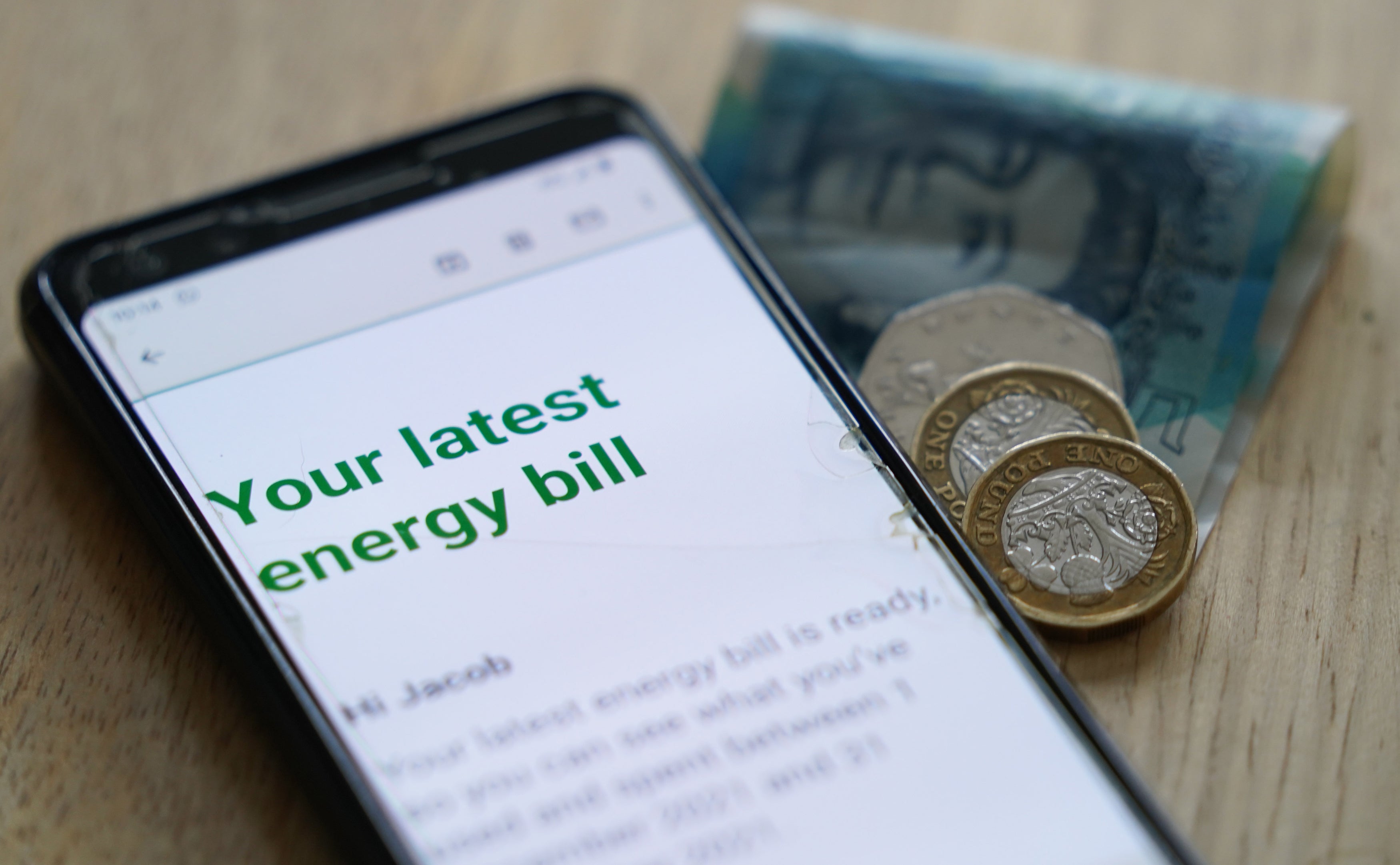Energy bills for average UK households are set to rise by £35 from October, Ofgem has confirmed, despite previous predictions that prices would fall.
The regulator confirmed the 2 per cent rise in bills on Wednesday morning, meaning the average annual bill will rise from £1,720 to £1,755.
Bills had previously been forecast to fall in October by a similar amount.
At the last announcement in July, bills fell by around seven per cent from the previous cap set for April to June of this year, with lowered wholesale energy prices and supplier costs contributing to the change.

Part of the rise this time around can be explained by the expansion of the warm home discount scheme for vulnerable households, which is expected to add around £15 to a typical bill, while also giving £150 in support to 2.7 million extra people.
However, wholesale prices for electricity and gas remain volatile as a result of global political instability and uncertainty over US trade policy.
The energy price cap peaked in early 2023 at £4,279 after surging in 2022 as a result of post-Covid energy demand surges, tight gas supply and the war in Ukraine. It had dropped back to £2,074 by mid- to late-2023, remaining between £1,568 and £1,928 across last year and this.
Campaigners against higher energy bills suggest some families are still struggling to pay off debts from two years ago when energy prices rose.
“While there is still more to do, we are seeing signs of a healthier market,” said Ofgem director general Tim Jarvis. “There are more people on fixed tariffs saving themselves money, switching is rising as options for consumers increase, and we’ve seen increases in customer satisfaction, alongside a reduction in complaints.
“While today’s change is below inflation, we know customers might not be feeling it in their pockets. There are things you can do, though – consider a fixed tariff as this could save more than £200 against the new cap. Paying by direct debit or smart pay-as-you-go could also save you money.”

A Labour spokesperson blamed the previous government’s reliance on sourcing overseas fossil fuels for energy for the still-high energy price cap, while pointing to six million people benefiting from the warm home discount.
“Energy bills soared under the Conservatives because they tied our country to the fossil fuel rollercoaster, and working people are still paying the price. From banning onshore wind to failing to deliver new nuclear, their reckless decisions left Britain exposed to wholesale gas prices,” the statement read.
“That’s why Nigel Farage’s unpatriotic war on clean energy would be a total disaster for families, businesses and our economy. His destructive plans would push bills higher, kill nearly a million jobs and scrap billions of pounds of vital investment across the country that will strengthen our energy security.”
Those who will feel the rise hardest are often from lower-income households, says Sarah Pennells, consumer finance specialist at Royal London – and cutting down on using heat in winter may not be an option due to poor insulation.
“While the cap is intended to shield consumers on the standard variable tariff from excessive charges, it still means millions of households will face higher energy bills just as we head into the colder months, when energy use is at its highest. For many, especially those in poorly insulated homes, lower-income households, families with children, renters and those who retire on a low income, it’s not simply a case of turning the heating down. Many are already cutting corners where they can,” Ms Pennells said.
“Our financial resilience research showed that over a third of adults (36 per cent) turned the heating down last year, with over one in five (22 per cent) turning it off completely, to save money.
“The rise comes at a time when wages are still catching up with inflation, food prices remain high, and interest rates continue to squeeze mortgage and rent payments. With many everyday costs having risen earlier this year, it’s worth reviewing other bills to see where savings can be made.”
Experts Cornwall Insight predict a small drop in energy bills for January 2026, but that will remain dependent on the above factors, as well as weather and domestic matters, potentially including the autumn Budget.
“In the longer term, we will continue to see fluctuations in our energy prices until we are insulated from volatile international gas markets. That’s why we continue to work with government and the sector to diversify our energy mix to reduce the reliance on markets we do not control,” added Mr Jarvis.
Minister for energy Michael Shanks added: “We know that any price rise is a concern for families. Wholesale gas prices remain 75 per cent above their levels before Russia invaded Ukraine. That is the fossil fuel penalty being paid by families, businesses and our economy.
“That is why the only answer for Britain is this government’s mission to get us off the rollercoaster of fossil fuel prices and onto clean, homegrown power we control, to bring down bills for good.”
Ofgem announces changes to the price cap for UK households every three months. The next change will be revealed on 25 November, which will cover prices from the start of 2026 through to the end of March.
As a reminder, the price cap sets a maximum price that energy suppliers can charge households in England, Scotland and Wales for each kilowatt hour (kWh) of energy used. It is not a limit to each household’s bills – users pay for the amount of energy they consume.
The price cap applies to those paying bills as they receive them, by direct debit or on prepayment or E7 meters. Actual rates can vary depending on how bills are paid, the region of the country and the type of meter.
Energy price cap: How to get the cheapest deals for your bills
Why are energy bills rising again and what can I do about it?
Millions set to face hike in energy bills this Autumn
Urgent scam warning issued as fraudsters pose as financial regulator
Business news live: FTSE 100 down, Poundland saved from administration







